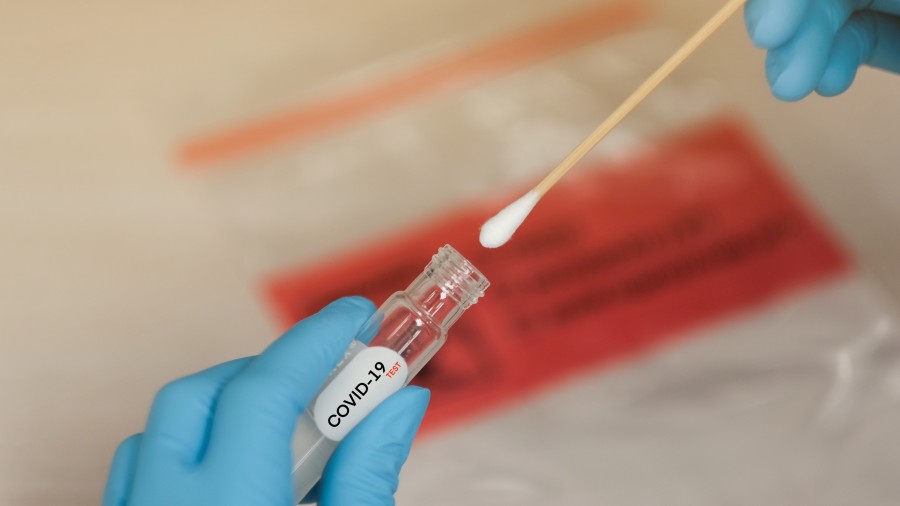The rise in Covid-19 cases across Jalpaiguri district in the past few days prompted the health department to plan an increase in the number of daily tests.
Sources in the department said the staff would visit rural pockets to collect samples, both for rapid antigen tests and RT-PCR tests.
“A number of rural areas of Jalpaiguri district had remained green zones for months. However, it came to our notice in the past few days that Covid cases had been reported from villages. That is why we have decided to increase the number of tests to find out the trend of infections in rural areas,” said Sushanta Roy, the officer on special duty appointed by the state government to manage the Covid situation in north Bengal.
Roy held a meeting with officials of the district administration, Jalpaiguri zilla parishad, panchayat samitis and blocks on Monday.
At the meeting, he mentioned that elected representatives and officials working at the rural bodies in all three tiers, along with those posted in blocks, should extend cooperation to the health department for collection of samples.
“We are focussing on haats (weekly village markets) as the infection can spread rapidly from such places. Our men will collect samples from traders as well as customers at the markets,” said Roy.
Uttara Burman, the sabhadhipati of the Jalpaiguri zilla parishad, has said there are 28 haats under the rural body. There are some more such markets in different blocks.
“It has been made clear that all traders at these markets will have to undergo tests. If any trader did not get himself tested, we will not let him open his shop or stall until the pandemic is over. We will soon start making public announcements to make people aware of this initiative and cannot take any chane to let the infection spread through these markets,” the sabhadhipati said.
As of now, around 1,000-odd tests — both rapid antigen and RT-PCR — are conducted in the district in a day. The health department has planned to increase the number to 2,500 in a day, said sources.











